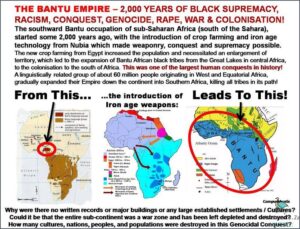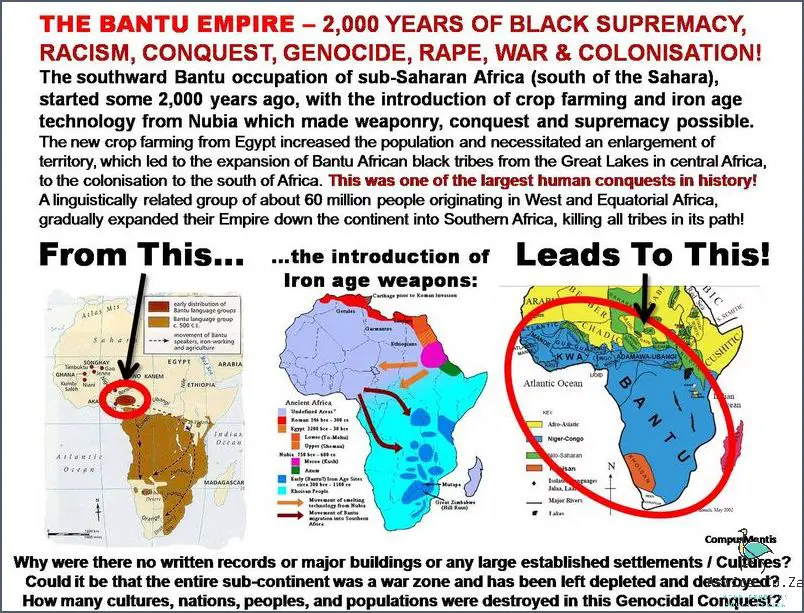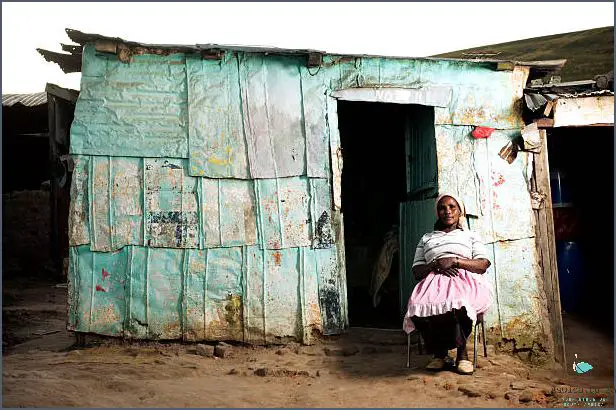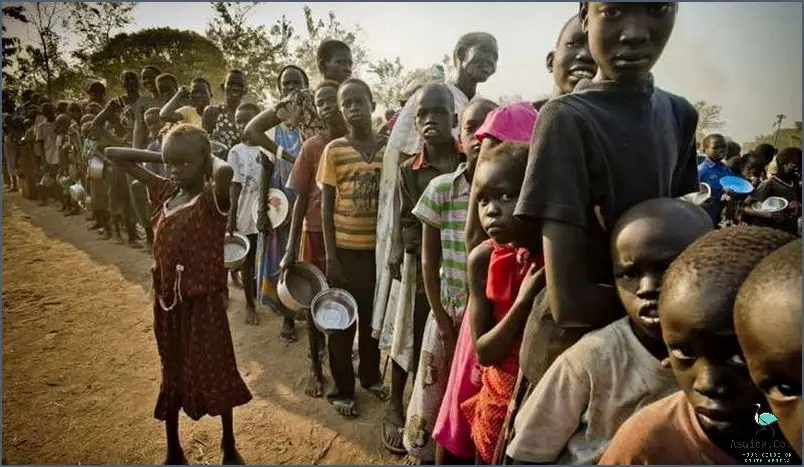
Migration has always been a significant factor in the development of South Africa. The country has a long history of both internal and external migration, with people from all parts of the world coming to South Africa in search of better opportunities and a better life. While the majority of the population are native to the country, there are many who have come from other African countries, as well as from Europe, Asia, and the Americas. With such a diverse population, it is not surprising that there are many causes of migration in South Africa.
One of the main reasons for migration is economic. With a growing economy and higher wages, many people from other parts of Africa have been attracted to South Africa in search of a better life. This is especially true for those living in rural areas, where the lack of jobs and opportunities make it difficult to make a living. As wages in South Africa have become more competitive, more people have been drawn to its cities and towns, in search of better employment opportunities.
Another major cause of migration in South Africa is the ongoing conflict in some parts of the country. This conflict has caused many people to flee their homes in search of safety and security. Many of these people have found refuge in South Africa,
Contents
- 1 Causes Of Migration In South Africa
- 2 Historical Causes: Discussing why people have migrated to South Africa in the past
- 3 Economic Causes: Examining the role of poverty, unemployment and inequality in migration
- 4 Political Causes: Analyzing the effect of government policies, civil wars and other conflicts on migration
- 5 Conclusion
Causes Of Migration In South Africa
Migration in South Africa is a consequence of a variety of factors. Many people migrate in search of a better life, with the aim of finding better job opportunities, better education, and improved housing. Economic inequality is a major factor in South African migration, as many people are looking for more financially stable conditions. In addition, political instability, such as the Apartheid regime, has caused many people to flee the country in search of a better life. Climate change has also been a factor in migration in South Africa, as people are forced to move to other regions in order to find food and water. Finally, a large number of migrants come from neighboring countries due to violence and poverty in their home countries, as well as the hope of finding a better life in South Africa.
Historical Causes: Discussing why people have migrated to South Africa in the past

The history of South Africa is a complex one, and its population has been shaped by a variety of different factors. Migration has played a major role in South Africa’s history, with people from all over the world traveling to the country for a variety of reasons. In this article, we’ll take a look at the historical causes of migration to South Africa and explore why people have moved to the country in the past.
The first major wave of migration to South Africa occurred during the colonial era, when Europeans began to settle the area. The Dutch East India Company was the first to establish a permanent settlement in the area, and they were soon followed by the British and French. These settlers brought with them their own language, culture, and religion, which had a profound impact on South Africa’s population.
The second wave of migration to South Africa took place during the 19th century, when the country began to industrialize. This period saw an influx of skilled laborers and entrepreneurs from the British Isles, Germany, and the Netherlands, who brought their own knowledge and expertise to the region. These migrants helped to build South Africa’s economy and infrastructure, and they also contributed to the development of its political and social systems.
The third wave of migration to South Africa occurred in the late 19th and early 20th centuries, when many people from other African countries began to flee conflict and poverty in their homelands. This wave of migration was largely driven by a desire for economic opportunities and a better quality of life. As a result, many of these migrants found work in South Africa’s mines and factories, and they also made up a large portion of the country’s agricultural labor force.
The fourth wave of migration to South Africa was largely driven by the country’s changing political landscape. During the 1970s and 1980s, many people from other African countries were forced to flee war and political unrest in their homelands. This wave of migration was primarily driven by a desire for safety and security, as many of these migrants were escaping persecution and violence in their home countries.
South Africa has also seen a fifth wave of migration in recent years, as people from other parts of Africa, Asia, and the Middle East have come to the country in search of economic opportunities and a better quality of life. This wave of migration has been largely driven by poverty, war, and violence in other parts of the world.
In conclusion, South Africa’s population has been shaped by a variety of different historical causes, including colonial settlement, industrialization, economic and political instability, and more recently, poverty, war, and violence in other parts of the world. Migration to South Africa has played a major role in the country’s history, and it continues to shape its population today.

Economic Causes: Examining the role of poverty, unemployment and inequality in migration
South Africa is a country that has experienced a great deal of migration in recent years. This movement of people has been driven by a number of economic causes such as poverty, unemployment and inequality. Each of these issues has played an important role in encouraging people to seek out a better life elsewhere.
Poverty is a major factor in driving migration. South Africa has a high poverty rate, with the World Bank estimating that around 40 percent of the population lives below the poverty line. For many people, the limited economic opportunities in their home country are not enough to allow them to escape poverty. As a result, they are willing to take the risk of migrating to a new country in the hope of finding better job prospects and a higher standard of living.
Unemployment is another major factor influencing migration. South Africa has an incredibly high unemployment rate, with official figures showing that it is currently around 27 percent. This means that there are not enough jobs available to meet the needs of the labour market. This has led to a number of people looking for work abroad, as they feel that it is their only chance of finding a job.
Inequality is yet another important economic cause of migration. South Africa has one of the highest levels of inequality in the world, with the Gini coefficient – a measure of income inequality – currently standing at 0.63. This means that the distribution of wealth in the country is highly unequal. This unequal distribution of resources has led to a number of people deciding to migrate to a country where they believe they can find better economic opportunities.
In conclusion, poverty, unemployment and inequality are all major economic causes of migration in South Africa. These issues have led to a large number of people seeking out a better life elsewhere by moving to a different country. It is important that the government takes steps to address these issues in order to reduce the number of people who feel the need to migrate.
Political Causes: Analyzing the effect of government policies, civil wars and other conflicts on migration

Migration in South Africa is a complex phenomenon, driven by a wide range of socio-economic and political factors. For many years, the country has been affected by civil wars, economic hardship, and government policies that have made it difficult for people to stay in their homes. In recent years, the situation has become even more complicated as a result of the escalating violence in the region, as well as the influx of refugees from neighbouring countries.
Civil wars and other conflicts have had a major impact on the migration patterns in South Africa, as people flee their homes in search of safety. In addition, the South African government’s policies on immigration and refugees have also played a role in driving people away from their homes. For instance, the government’s policy of ‘xenophobia’, which limits the rights of foreign nationals and refugees, has resulted in many people seeking refuge in other countries.
In addition to the political causes, economic hardship is also a major factor driving migration in South Africa. Many people have been forced to leave their homes due to the lack of employment opportunities and the high cost of living. The high unemployment rate in the country has caused many to leave in search of better opportunities elsewhere.
The situation has been further exacerbated by the fact that South Africa is one of the most unequal countries in the world, with a high level of inequality between rich and poor. This has caused many people to move away from their homes in search of a better life.
Overall, civil wars and other conflicts, as well as government policies and economic hardship, have all contributed to the high levels of migration in South Africa. The combination of these factors has resulted in a complex situation, in which people are forced to leave their homes in search of a better life.
Conclusion
There are many reasons why people migrate to South Africa. Some people come in search of better economic opportunities, while others are fleeing conflict or persecution. Still others come to join family members who have already migrated.
South Africa has a long history of migration, dating back to the time when people first began to settle the country. Today, migration continues to play an important role in the country’s economy and society.



